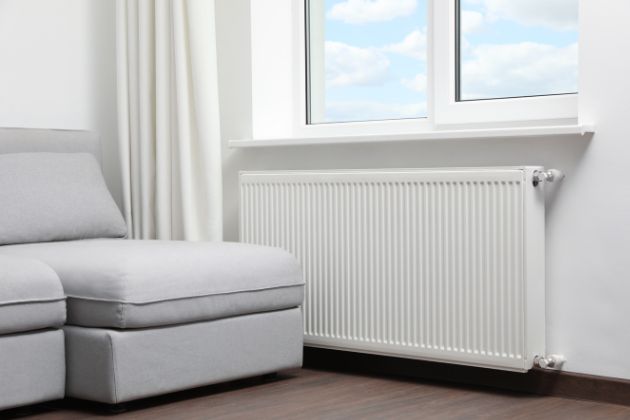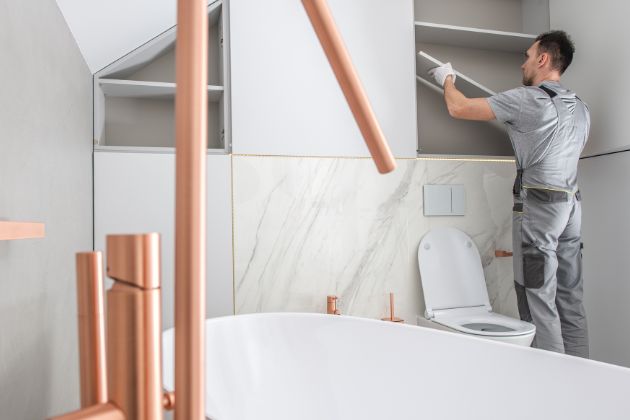Why You Should Upgrade to an Air Source Heat Pump
In the evolving landscape of home heating, traditional fossil fuel systems are quickly becoming relics of the past. Homeowners across the UK are seeking more efficient, environmentally conscious alternatives that not only reduce energy costs but also minimise carbon footprints. Enter the air source heat pump – a revolutionary heating and cooling solution that's transforming how we think about home temperature control.
For decades, homes have relied on gas boilers and electric heating systems that are inherently inefficient and environmentally damaging. Air source heat pumps represent a significant advancement in home heating technology, offering a sustainable, versatile approach to temperature management. These intelligent systems extract heat from the outside air – even in cold temperatures – and transfer it into your home with remarkable efficiency.
What are Air Source Heat Pumps?
Air source heat pumps (ASHPs) are innovative heating and cooling systems that extract heat from the outside air and transfer it into your home. They operate on a similar principle to refrigerators but in reverse. These systems can also cool your home by extracting heat from inside and releasing it outdoors.
The primary components of an air source heat pump include an outdoor unit (containing the evaporator and compressor) and an indoor unit (housing the condenser and air handler). As Vaillant explains, installation typically requires sufficient outdoor space for the external unit and appropriate indoor space for the internal components.
Advantages of Air Source Heat Pumps
High Energy Efficiency
Air source heat pumps are remarkably efficient, often delivering three to four times more heat energy than the electrical energy they consume. Grant UK confirms that this high efficiency stems from their ability to move heat rather than generate it, resulting in significant energy savings compared to traditional heating systems like gas boilers or electric resistance heaters.
Environmental Benefits
By harnessing renewable energy from the air, air source heat pumps substantially reduce carbon emissions. OFGEM notes that as the UK electricity grid continues to incorporate more renewable sources, the environmental impact of these systems will further decrease. This makes them an excellent choice for homeowners looking to reduce their carbon footprint.
Cost Savings
While the initial installation costs are higher than traditional systems, air source heat pumps can lead to significant long-term savings on energy bills. The exact savings depend on factors such as your current heating system, home insulation, and local energy prices. Additionally, the UK government offers incentives through schemes like the Boiler Upgrade Scheme (BUS), which can help offset the initial costs.
Health and Wellness Benefits
Air source heat pumps contribute to improved indoor air quality by filtering the air as it circulates. Unlike combustion-based heating systems, they don't produce carbon monoxide, eliminating the associated health risks. This makes them a safer option, particularly for households with respiratory issues or young children.
All-in-One Heating and Cooling System
One of the key advantages of air source heat pumps is their ability to provide both heating and cooling. This versatility eliminates the need for separate systems, saving space and potentially reducing overall costs.
Zoning Capabilities
Many air source heat pump systems offer zoning capabilities, allowing you to heat or cool different areas of your home to different temperatures. This feature can enhance comfort and energy efficiency by allowing you to tailor the temperature to each room's specific needs.
Is an Air Source Heat Pump Right for You?
Home Criteria
Air source heat pumps are most suitable for well-insulated homes. OFGEM advises that before installation, consider upgrading your insulation to maximise efficiency. You'll need sufficient outdoor space for the external unit, ensuring it has good airflow and isn't obstructed by vegetation or structures.
These systems work best with low-temperature heating systems like underfloor heating or oversized radiators. Grant UK recommends that if you're replacing an old heating system, you may need to upgrade your radiators or consider installing underfloor heating for optimal performance.
Installation Considerations
Professional installation is crucial for air source heat pumps. A qualified installer will assess your home's heating needs, recommend the appropriate system size, and ensure proper integration with your existing heating infrastructure.
Consider how the system will integrate with your current hot water provision. Some air source heat pumps can provide domestic hot water, either directly or by working alongside a compatible hot water tank.
By carefully evaluating these factors, you can determine whether an air source heat pump is the right choice for your home, potentially leading to significant energy savings and a reduced carbon footprint.
FAQs
How do air source heat pumps work?
Air source heat pumps extract heat from the outside air and transfer it to your home, using electricity to power the process. They can also reverse the process to provide cooling.
Are air source heat pumps expensive to install?
Yes, air source heat pumps have a higher upfront cost compared to traditional heating systems. However, OFGEM confirms they can offer long-term savings on energy bills and reduce your carbon footprint. Government incentives are available to help offset initial costs.
Do air source heat pumps work well in cold weather?
While air source heat pumps are less efficient at very low temperatures, they can still provide effective heating. They may need to run for longer to achieve the desired indoor temperature.
Can air source heat pumps provide hot water?
Yes, according to Grant UK, some air source heat pumps can provide domestic hot water, either directly or by integrating with a compatible hot water tank.
What are the health benefits of using an air source heat pump?
Air source heat pumps can improve indoor air quality and reduce the risk of carbon monoxide poisoning compared to traditional fossil fuel-based heating systems.
Can I use an air source heat pump during a power outage?
No, air source heat pumps require electricity to operate and will not function during a power outage. Consider backup solutions like generators or battery storage.
Contact us for further advice on air source heat pumps
If you are looking for a fully qualified team to help install a heat pump in your home, look no further than Pipeline Plumbing Services Ltd. We can help install heat pumps across West Sussex, including Horsham, Pulborough, Storrington and Billingshurst. Call us on 01903 740538 or 07871 725133 to find out more.




